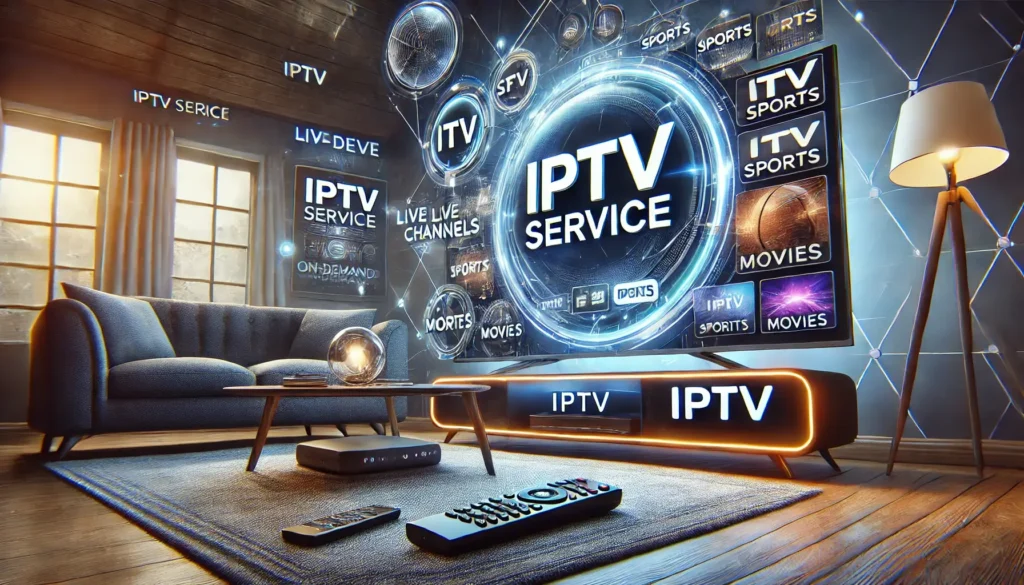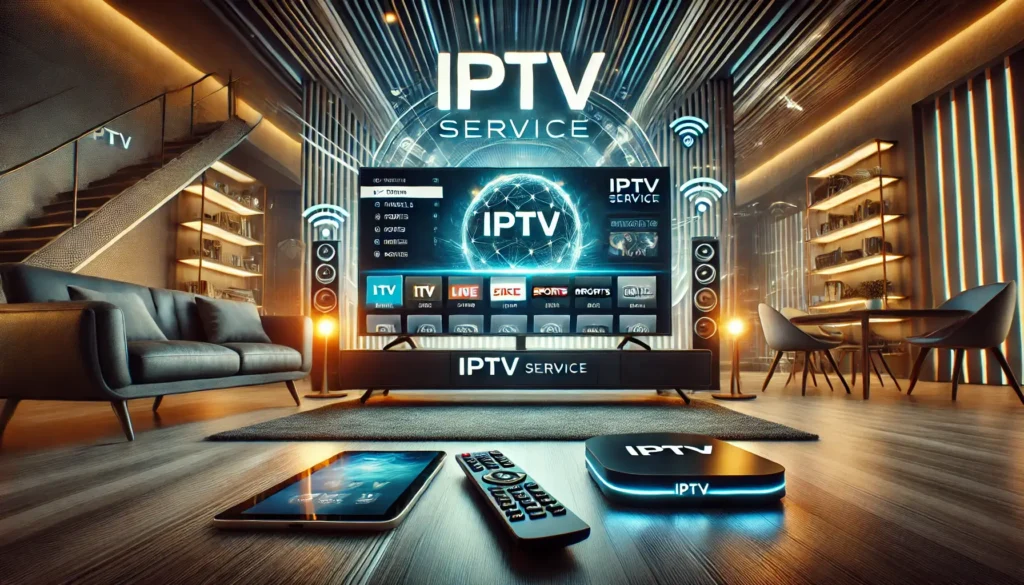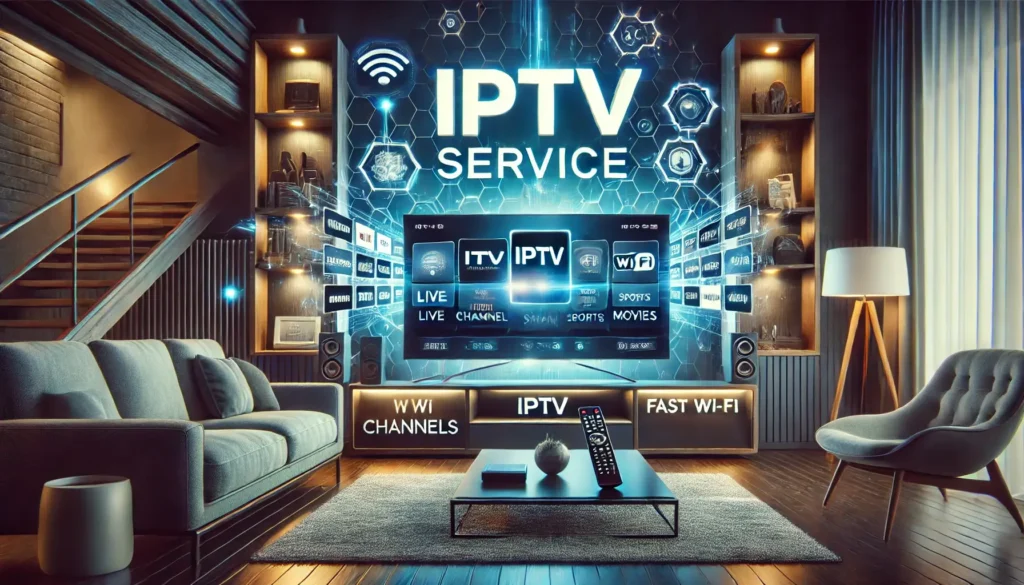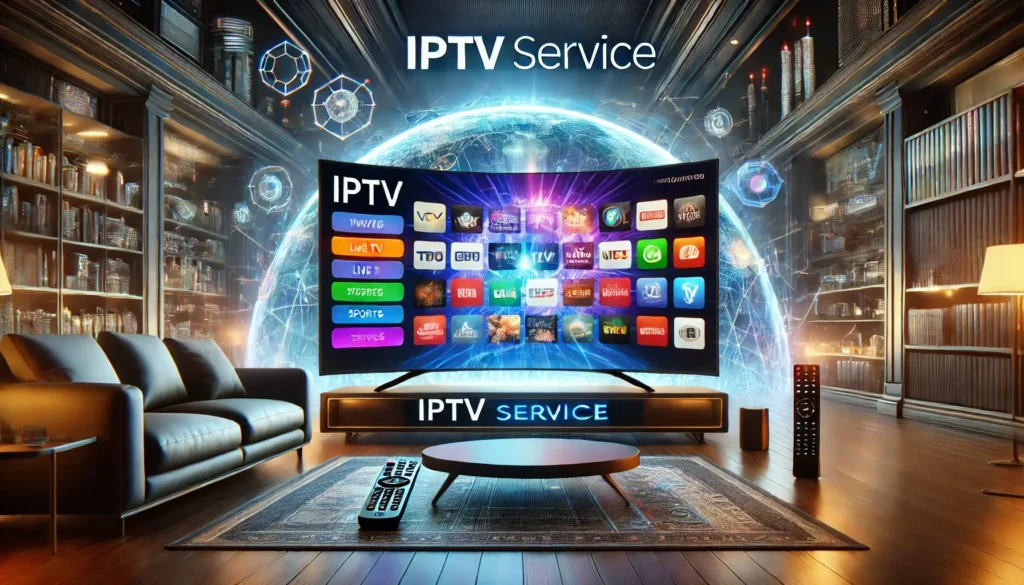Introduction
IPTV Service (Internet Protocol Television) has revolutionized the way people watch TV by offering flexible, on-demand streaming services. However, one of the biggest frustrations users face is buffering, freezing, and service disruptions.
Why does IPTV Service keep buffering or not work properly? Many factors contribute to these issues, including slow internet speeds, overloaded servers, poor Wi-Fi connections, or ISP throttling. If you’re experiencing IPTV problems, this guide will help you troubleshoot and fix the most common IPTV buffering and service issues to enjoy smooth, uninterrupted streaming.

Understanding IPTV and Why Issues Occur
What is IPTV Service and How Does It Work?
IPTV Service delivers television content via the internet instead of traditional cable or satellite networks. It works by streaming media through a network protocol, requiring a stable internet connection for smooth playback.
Types of IPTV Services:
| IPTV Type | Description |
|---|---|
| Live IPTV | Streams live TV channels over the internet. |
| Video on Demand (VOD) | Users can select and watch pre-recorded content anytime. |
| Time-Shifted IPTV | Allows users to pause, rewind, or replay live content. |
Common Causes of IPTV Problems
There are several reasons why IPTV Service buffering and service issues occur:
- Slow internet speeds: Insufficient bandwidth causes buffering.
- ISP throttling: Some internet providers slow down IPTV Service streams.
- Weak Wi-Fi signals: Poor connectivity results in lag and interruptions.
- Overloaded IPTV servers: Too many users can slow streaming speeds.
- Outdated software or hardware: Older devices may struggle to handle IPTV Service streams.
How to Fix IPTV Buffering Problems
Test Your Internet Speed
To stream IPTV Service smoothly, ensure your internet speed meets the following recommendations:
| Streaming Quality | Recommended Speed |
|---|---|
| SD (480p) | 10 Mbps |
| HD (720p, 1080p) | 25 Mbps |
| 4K UHD | 50+ Mbps |
Use Speedtest.net to check your speed. If it’s too slow, consider upgrading your plan.
Optimize Your Internet Connection
- Use a wired connection (Ethernet) instead of Wi-Fi to reduce lag.
- Restart your router and modem to refresh the connection.
- Limit other devices using the network while streaming IPTV.
Change IPTV Streaming Quality Settings
Reducing video resolution can reduce buffering. If you experience lag, lower the quality from 4K to 1080p or 720p in your IPTV settings.
Use a VPN to Bypass ISP Throttling
Some ISPs intentionally slow down IPTV Service streaming. Using a VPN (such as NordVPN, ExpressVPN, or Surfshark) can help bypass throttling and improve streaming quality.

Fixing IPTV Freezing, Lag, and Playback Issues
Restart Your IPTV Device and App
A quick restart can resolve many playback issues. Steps to restart:
- Close the IPTV Service app.
- Turn off your device.
- Unplug it for 30 seconds.
- Turn it back on and reopen the app.
Update Your IPTV App and Firmware
Keeping your IPTV app and device software up to date ensures compatibility and performance improvements.
Switch to a More Reliable IPTV Provider
If you experience constant lag despite fixing your connection, your IPTV provider may be unreliable. Look for IPTV services with high uptime, strong servers, and good customer support.
How to Fix IPTV Connectivity Problems
Check If IPTV Servers Are Down
If your IPTV app isn’t working, visit the provider’s website or support forums to see if their servers are experiencing downtime.
Improve Wi-Fi Signal for IPTV
- Move closer to the router or use a Wi-Fi extender.
- Switch to a 5GHz Wi-Fi band for better speed.
- Use a mesh Wi-Fi system for a more stable connection.
Firewall and Router Settings for IPTV
Sometimes, firewall settings may block IPTV traffic. Go to your router settings and disable firewall or parental controls if they interfere with streaming.
IPTV Not Working? Troubleshooting IPTV App and Player Issues
Common IPTV App Errors and How to Fix Them
| Error Message | Solution |
|---|---|
| “Playback Failed” | Restart the app and check your internet connection. |
| “No Stream Available” | Try another channel; the stream may be down. |
| “Invalid URL or M3U Playlist Error” | Verify that the playlist URL is correct. |
Best IPTV Players for a Smooth Experience
- TiviMate – Best for Android TV.
- IPTV Smarters Pro – User-friendly and customizable.
- GSE Smart IPTV – Supports multiple playlist formats.
Advanced IPTV Troubleshooting Tips
Clearing Cache and Data for IPTV Apps
Old cache files can cause lag. Go to App Settings > Clear Cache to free up memory.
Adjusting Buffer Size in IPTV Settings
Increasing buffer size can reduce buffering. Look for this setting in your IPTV player.
Using a Dedicated IPTV Box for Better Performance
Devices like the Nvidia Shield, Firestick 4K, or Chromecast offer smoother IPTV playback than Smart TVs.

Preventing IPTV Issues in the Future
- Keep your IPTV apps updated.
- Restart your devices regularly.
- Choose a reliable IPTV provider.
FAQs About Fixing IPTV Issues and Buffering
- Why does my IPTV keep buffering?
- Slow internet, server overload, or ISP throttling.
- Can a VPN improve IPTV streaming?
- Yes, it helps bypass ISP throttling.
- What’s the best internet speed for IPTV?
- At least 25 Mbps for HD streaming.
How to Choose the Best IPTV Service to Avoid Issues
One of the biggest factors affecting IPTV performance is the quality of the service provider. Many IPTV issues, including buffering, freezing, and downtime, stem from unreliable providers with poor server infrastructure. To ensure a smooth and stable IPTV experience, follow these key factors when selecting an IPTV provider.
1. Look for IPTV Services with High Server Uptime
A reputable IPTV provider should have 99.9% uptime to minimize interruptions. Frequent downtime indicates that the provider’s servers may be overloaded or poorly managed.
🔹 How to check uptime?
- Visit IPTV review sites and forums.
- Ask customer support about their server uptime guarantee.
- Look for IPTV services that use dedicated servers with load balancing.
2. Test Before You Subscribe
A reliable IPTV service should offer a free trial or money-back guarantee. Avoid providers that require long-term commitments without testing.
✔️ Look for IPTV trials that offer:
- Full channel access.
- HD and 4K streaming support.
- At least 24-48 hours to test performance.
3. Check the Number of Channels and VOD Library
Before subscribing, ensure the service has the channels you need, including:
- Live TV (Sports, News, Movies, Entertainment)
- Video On Demand (VOD) – Movies & TV Shows
- International & Local Channels
“A quality IPTV provider should offer a mix of live TV, catch-up services, and on-demand content to suit different viewing needs.”
4. Read Reviews and Community Feedback
One of the best ways to identify a good IPTV provider is to check online reviews and IPTV communities. Look for feedback on:
- Streaming reliability and speed.
- Customer support responsiveness.
- Ease of installation and app compatibility.
🚀 Where to find IPTV reviews?
- IPTV Reddit communities.
- Trustpilot and IPTV review sites.
- Facebook IPTV user groups.

Comparison Table: Reliable vs. Unreliable IPTV Providers
| Feature | Reliable IPTV Provider | Unreliable IPTV Provider |
|---|---|---|
| Uptime | 99.9% or higher | Frequent downtime |
| Free Trial | Available | Not offered |
| Streaming Quality | HD & 4K supported | Mostly SD, low bitrate |
| Server Load | Load-balanced, fast servers | Overloaded, slow servers |
| Customer Support | 24/7 live chat support | Poor or no support |
| Device Compatibility | Works on all major devices | Limited device support |
Conclusion
Fixing common IPTV issues requires a combination of internet optimization, VPN usage, and troubleshooting app settings. By following these steps, you can enjoy buffer-free IPTV streaming. If problems persist, consider switching to a reliable IPTV provider.





